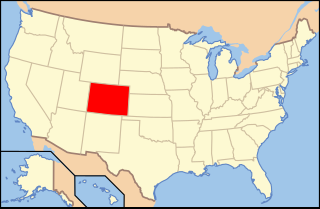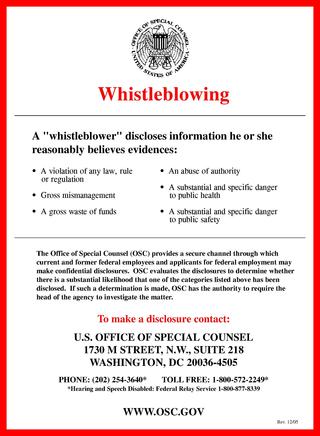Adjudication is the legal process by which an arbiter or judge reviews evidence and argumentation, including legal reasoning set forth by opposing parties or litigants, to come to a decision which determines rights and obligations between the parties involved.
Legal ethics are principles of conduct that members of the legal profession are expected to observe in their practice. They are an outgrowth of the development of the legal profession itself.

The Foreign Corrupt Practices Act of 1977 (FCPA) is a United States federal law that prohibits U.S. citizens and entities from bribing foreign government officials to benefit their business interests.

The Constitutional Court of Korea is one of the highest courts—along with the Supreme Court—in South Korea's judiciary that exercises constitutional review, seated in Jongno, Seoul. The South Korean Constitution vests judicial power in courts composed of judges, which establishes the ordinary-court system, but also separates an independent constitutional court and grants it exclusive jurisdiction over matters of constitutionality. Specifically, Chapter VI Article 111(1) of the South Korean Constitution specifies the following cases to be exclusively reviewed by the Constitutional Court:
- The constitutionality of a law upon the request of the courts;
- Impeachment;
- Dissolution of a political party;
- Competence disputes between State agencies, between State agencies and local governments, and between local governments; and
- Constitutional complaints as prescribed by [the Constitutional Court] Act.

The Independent Communications Authority of South Africa (ICASA) is an independent regulatory body of the South African government, established in 2000 by the ICASA Act to regulate both the telecommunications and broadcasting sectors in the public interest.
Commodity Futures Trading Commission v. Schor, 478 U.S. 833 (1986), was a case in which the Supreme Court of the United States held an administrative agency may, in some cases, exert jurisdiction over state-law counterclaims.

Amendment 41 is a citizen initiative adopted by Colorado voters in the 2006 general election. Amendment 41 has three main sections.

The Military Commissions Act of 2006, also known as HR-6166, was an Act of Congress signed by President George W. Bush on October 17, 2006. The Act's stated purpose was "to authorize trial by military commission for violations of the law of war, and for other purposes".
The Office of Special Counsel was an office of the United States Department of Justice established by provisions in the Ethics in Government Act that expired in 1999. The provisions were replaced by Department of Justice regulation 28 CFR Part 600, which created the successor office of special counsel. The current regulations were drafted by former acting Solicitor General Neal Katyal.

The judiciary of Somalia is defined by the Provisional Constitution of the Federal Republic of Somalia. It stipulates that the national court structure is to be organized into three tiers: the Constitutional Court, Federal Government level courts, and Federal Member State level courts. A future nine-member Judicial Service Commission is empowered to appoint any federal tier member of the judiciary. It also selects and presents potential Constitutional Court judges to the House of the People of the Federal Parliament for approval. If endorsed, the President then appoints the candidate as a judge of the Constitutional Court. The five-member Constitutional Court is likewise empowered to adjudicate issues pertaining to the constitution, in addition to various federal and sub-national matters.

The New Mexico Supreme Court is the highest court in the U.S. state of New Mexico. It is established and its powers defined by Article VI of the New Mexico Constitution. It is primarily an appellate court which reviews civil and criminal decisions of New Mexico's trial courts of general jurisdiction and certain specialized legislative courts, only having original jurisdiction in a limited number of actions. It currently resides in the New Mexico Supreme Court Building in Santa Fe.

The Constitution of the State of Colorado is the foundation of the laws and government of the U.S. state of Colorado. The current, and only, Colorado State Constitution was drafted on March 14, 1876; approved by Colorado voters on July 1, 1876; and took effect upon the statehood of Colorado on August 1, 1876. As of 2020, the constitution has been amended at least 166 times. The Constitution of Colorado derives its authority from the sovereignty of the people. As such, the people of Colorado reserved specific powers in governing Colorado directly; in addition to providing for voting for Governor, state legislators, and judges, the people of Colorado have reserved initiative of laws and referendum of laws enacted by the legislature to themselves, provided for recall of office holders, and limit tax increases beyond set amounts without explicit voter approval, and must explicitly approve any change to the constitution, often with a 55% majority. The Colorado state constitution is one of the longest in the United States.

Arar v. Ashcroft, 585 F.3d 559, was a lawsuit brought by Maher Arar against the United States and various U.S. officials pursuant to the Torture Victim Protection Act (TVPA), and the Fifth Amendment to the United States Constitution. The United States District Court for the Eastern District of New York dismissed Arar's complaint due to lack of personal jurisdiction and national security and foreign policy considerations. This ruling was ultimately upheld by a divided en banc panel of the United States Court of Appeals for the Second Circuit.

The Constitutional Court of the Republic of Indonesia is one of the apex courts in Indonesia along with the Indonesian Supreme Court. Its primary role is reviewing the constitutionality of statutes (undang-undang). It also has other functions, including resolving disputes over the powers of state institutions, settling disputes over the results of general elections, deciding on the dissolution of political parties, and supervising impeachment. The last two functions have never been exercised by the Court.

An ombudsman, ombud, ombuds, ombudswoman, ombudsperson or public advocate is an official who is usually appointed by the government or by parliament to investigate complaints and attempt to resolve them, usually through recommendations or mediation.
The American Bar Association's Model Rules of Professional Conduct (MRPC) are a set of rules and commentaries on the ethical and professional responsibilities of members of the legal profession in the United States. Although the MRPC generally is not binding law in and of itself, it is intended to be a model for state regulators of the legal profession to adopt, while leaving room for state-specific adaptations. All fifty states and the District of Columbia have adopted legal ethics rules based at least in part on the MRPC.

The Constitution of Samoa is a written constitution which is the supreme law in Samoa. It establishes Samoa as a parliamentary republic with a Westminster system and responsible government. It outlines the structure and powers of the Samoan government's three parts: the executive, legislature, and judiciary.

A whistleblower is a person who exposes any kind of information or activity that is deemed illegal, unethical, or not correct within an organization that is either private or public. The Whistleblower Protection Act was made into federal law in the United States in 1989.

Jarkesy v. Securities and Exchange Commission (2022) is a case that has been going on for almost a decade. In May 2022, Court of Appeals for the Fifth Circuit held, under certain statutory provisions, the Securities and Exchanges Commission's administrative adjudication of fraud claims without jury trials in their administrative proceedings with their own ALJs violated three provisions of the Constitution.














